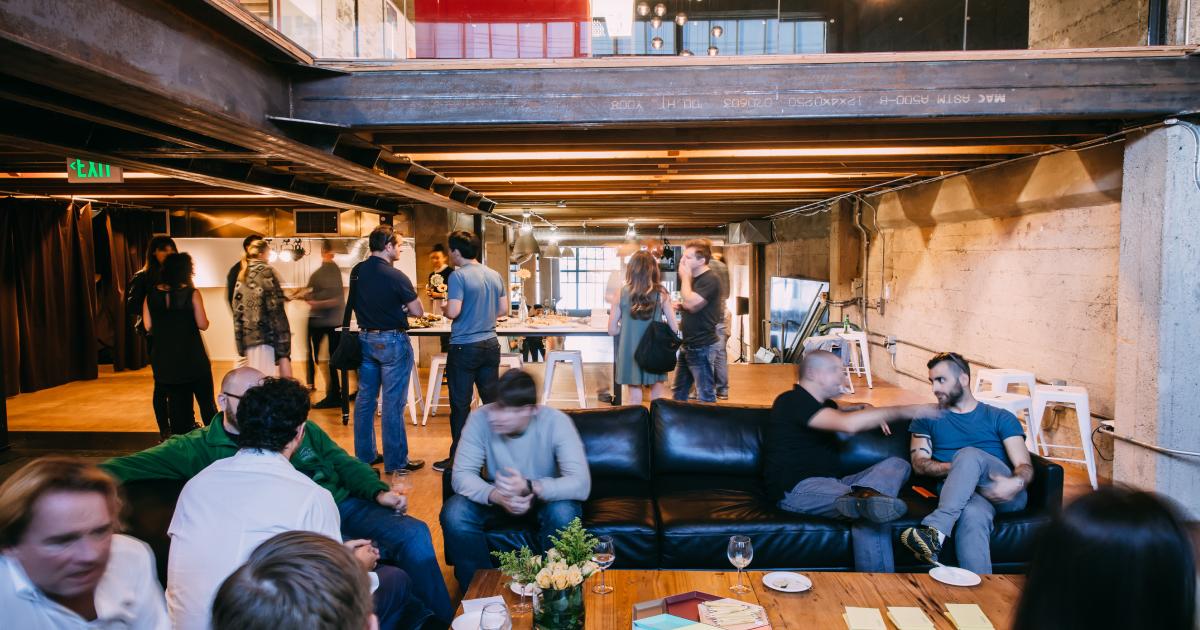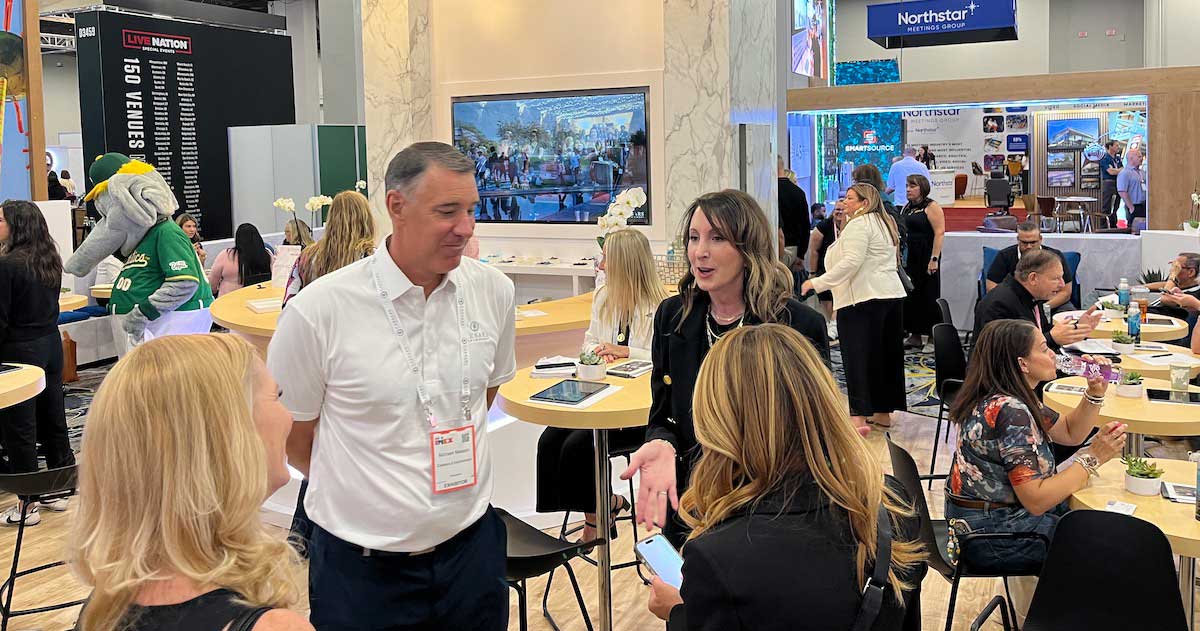When you need to book a meeting or event, standard operating procedures have you exploring convention/conference centers, hotel event space and maybe some other venues that are recommended or included in the CVB’s registry. Yet, in your private travels, you’ve become acquainted with—and maybe even love—alternative booking services such as Airbnb. While some planners have utilized Airbnb for finding and booking unique event space, you really want a service that’s dedicated to alternative event venues—a service that’s not filled with short-term accommodations and shared sleeping spaces. So what’s a curious planner to do?
“We’re like the Airbnb of meeting and event space…” is a tagline used by numerous young “disruptive” companies that have borrowed elements of the Airbnb business model. Considering that some of them have thus far survived a few years, it’s high time to explore this new approach to securing unique spaces for meetings and events.
These companies aren’t simply listing services designed to appeal to Millennials seeking venues they’re unlikely to find with a Google search or through a CVB; much like Airbnb, these are marketplaces through which anyone with suitable commercial space can offer it for meeting and event rental—whether you need two hours or two days. That’s what you’d imagine, at least, based on the accommodations-disruptor they like to be compared to in an elevator speech. Of course, some are more Airbnb-y than others—nuance in the offerings and differentiators are key; read wisely.
EVENTUp
Juliana Albano was looking for a unique venue at which to hold a fundraiser for Eye to Eye, a New York-based nonprofit organization dedicated to mentoring and empowering youth that have learning disabilities, such as ADHD and dyslexia. As associate director of development for the group, Albano oversees all fundraising efforts.
“So I plan all sorts of events,” she says. “These range from small, intimate house parties/dinners at the homes of donors to larger 200-person fundraisers.”
It was Eye to Eye’s largest annual fundraiser for which she explored venues on EVENTup.
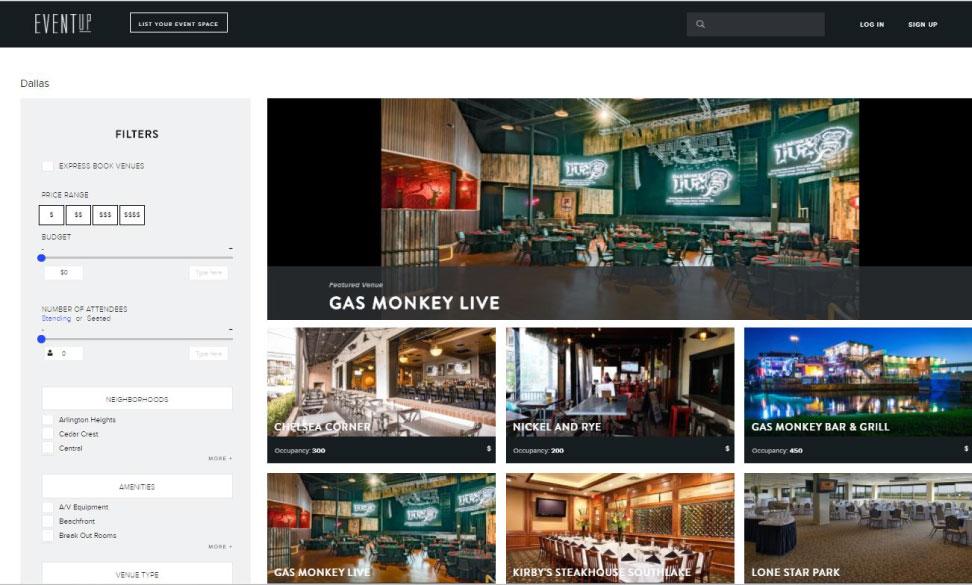
“I loved that EVENTup had so many venues compiled in one place, with all of the necessary information about the venue included—it felt like a one-stop shop for my venue searching needs,” she says. “I will 100 percent use EVENTup again for our next fundraiser. I was also very impressed by the EVENTup team—as soon as I started using the website, I received an email from a team member asking if they could help with my venue search. I told them the vision and constraints I had, and [the representative] wrote back quickly with about 15 amazing options of venues to choose from, all of which were a great fit for us.”
In the end, Albano selected a venue named Hudson Terrace for the May gathering. The spaces used for the same fundraising event over the years have varied, but she says Hudson Terrace was a wonderful fit.
“As a nonprofit organization, we personally take pride in seeking out unique venues for our fundraisers,” she says. “So many of our donors are used to the same, boring ‘rubber chicken’ dinners, and we provide a more youthful, lively and alternative event to make things more fun for our donors. Having an alternative venue is a requirement for my organization, and always enhances the experience for our guests.”
Albano has not used any other alternative venue-booking services, but reports there were no drawbacks to using EVENTup. In fact, attendees loved Hudson Terrace so much, they’ve encouraged her to book it for the next Eye to Eye fundraiser. “This venue was actually a little more expensive than what we had booked in the past, but it held more people, had a better tech setup and we bought significantly more food,” Albano says. Considering the advantages, she supposes the cost was on par with that of past fundraisers.
Hotels and conference centers are included in EVENTup’s more than 10,000 listings. That’s the first noticeable difference between this service and some of its competitors. However, says Account Executive Kristin Nevells, that’s one of the ways that EVENTup stands out in the crowded field of new event venue booking services.
“EVENTup differs from our competitors because of the size of our database, types of spaces and the way we book events,” Nevells says. “Our venues range from conference centers to mansions to boats to intimate loft spaces. Our competitors also keep a percentage of the cost of each booking. We do not take a percentage, we just have a one-time fee for venues to be listed on our site and everything they book is theirs to keep.”
Despite being less Airbnb-y than others because decidedly mainstream types of spaces are among the venues offered, Nevells feels it is accurate to describe EVENTup as similar to Airbnb because lesser-known, alternative spaces are also included.
Founded in 2013 and based in Chicago, EVENTup’s largest markets are New York, Chicago, Los Angeles and San Francisco.
Related Article: 4 Emerging Cities for Meeting and Event Destinations
Peerspace
Started three years ago, Peerspace offers venues in cities such as San Francisco, New York, Los Angeles, Chicago, Seattle and Austin.
“We have over 4,000 locations ranging from warehouses to lofts to even private yachts—all different types of spaces you wouldn’t be able to find anywhere else,” says Stephanie Wong, content and social media manager for Peerspace. “We see a lot of businesses and startups booking our spaces for meetings and offsites because they’re craving something more unique that will impress their team.” In addition to professional meetings, people come to Peerspace for different types of activities. “We have guests using Peerspace to book their birthday party, team bonding activities, photo shoots, corporate trainings, and much more.”
Peerspace is similar to Airbnb in that anyone with a suitable space can list it through the platform. Because of this, there’s a massive variety in venue styles and locations.
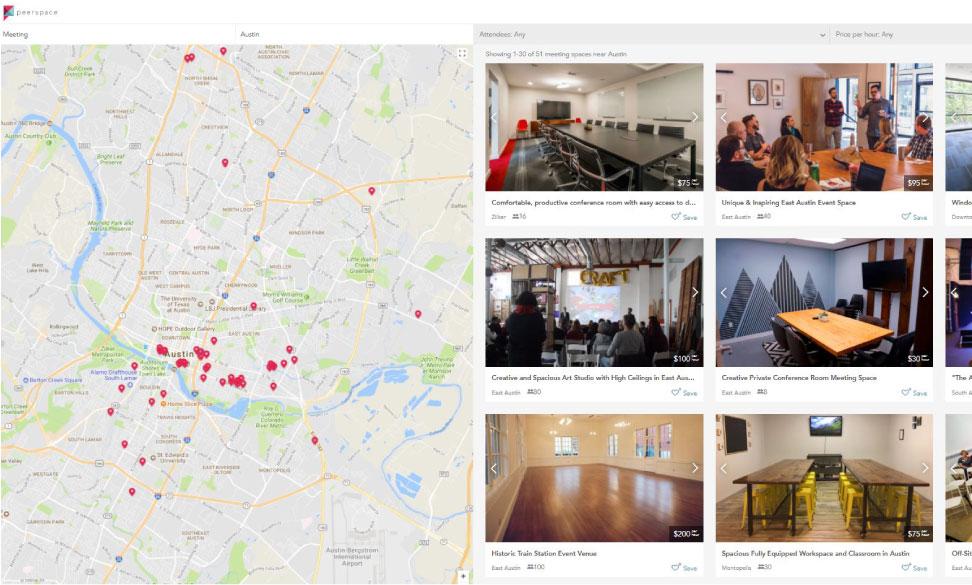
“We don’t own any of the spaces, instead we’re a peer-to-peer marketplace that connects people to underutilized space,” Wong says, unlike other sites that just list other event venues. “These sites link out to each venue which means you still have to go through each individual site,” she says.
Peerspace’s differentiator, she maintains, is that all communication with the venue owners goes through the Peerspace platform. This helps to simplify the booking process by offering transparent pricing, which unlike a lot of traditional event venues, include hidden fees.
“It’s a very standardized process,” Wong says. “After browsing spaces, you simply message the hosts to find the one that best fits your needs.”
One thing planners should consider when evaluating properties is the representation of venue staff onsite—or a lack thereof. Of course, sometimes you’ll need no one there—just the space. Be sure to enquire in advance of booking.
“Many of our spaces offer onsite support to make sure the bookings go smoothly to give planners piece of mind,” Wong says.
Related Articles: Meeting Planner or Meeting Strategist? Redefining the Role
Splacer
With more than 2,000 event spaces in five U.S. cities (New York, L.A., San Francisco, Chicago and Miami), Splacer may be the smallest company mentioned here, but it’s got a firm mission and is a rarity in the tech field—a company founded by women that also boasts a majority-female leadership team.
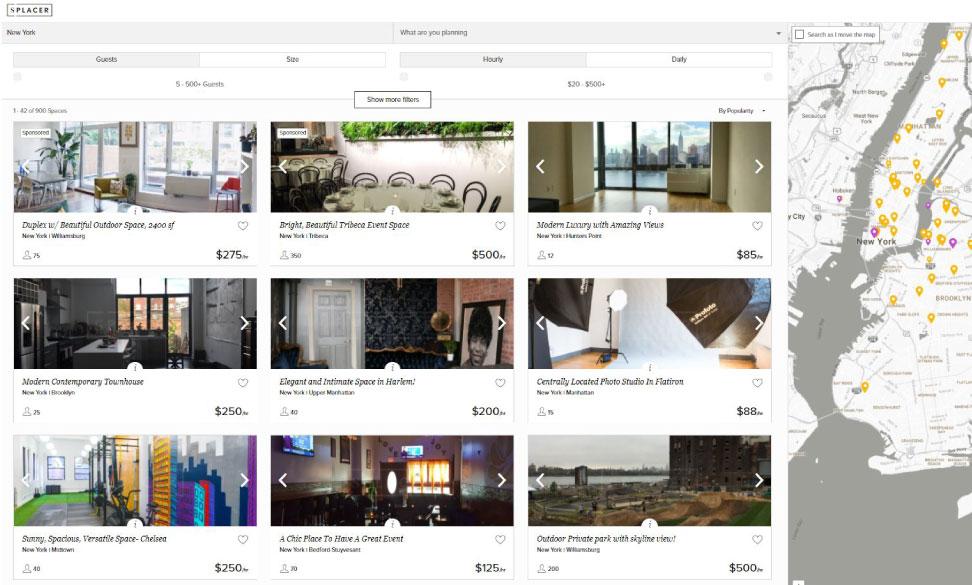
“Splacer was founded in 2014 by two architects who believe in the power of space to inspire creativity and generate new ideas. They developed a marketplace platform that gives renters easy access to undiscovered and underutilized spaces,” says Director of Business Development Yael Raviv. “Splacer works with both private and commercial spaces, harnessing the power of the sharing economy to create access to new venues and support a more sustainable urban lifestyle.”
Raviv identifies Splacer as a curated marketplace in which all spaces are reviewed specifically with an eye for great design.“[We] have also developed a set of intuitive and elegant management tools we offer all our space owners,” she says. “These tools allow [property owners] to manage their space for any event inquiry from one central hub and offer professional services from calendar management to invoicing.”
Again, the actual presence of onsite management varies between properties, but Raviv says that planners will always have direct interaction with a venue’s owner or representative—so just ensure the communication setup works with your processes and needs before booking a site.
SIDEBAR
Bypassing Local Rental Regulations?But what of local short-term rental ordinances and if/how they could disrupt your event as they have disrupted Airbnb’s practices? Since these alternative venue-booking services offer commercial property and, typically, no overnight stays, zoning problems are not an issue.
“The space is commercial real estate—it’s not people’s homes,” says Stephanie Wong, content and social media manager for Peerspace. “It’s a very different kind of booking, there are no overnight stays.”
Account Executive Kristin Nevells says such issues have not been a problem for EVENTup and the venues it offers.
“Our marketplace is structured in such a way that all bookings occur within the guidelines of the venues and in our terms and conditions; venues agree that they are able to rent their space for events and have the proper documentation when they sign up,” Nevells says.
Splacer Director of Business Development Yael Raviv goes a step further: “It is completely legal—and even encouraged in some cities and contexts—to rent your space out on an hourly basis for meetings, film and photo shoots, pop-ups and other events. As long as it is not an overnight stay there is typically no legal issue.”
